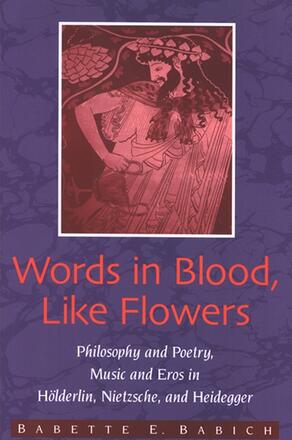
Words in Blood, Like Flowers
Philosophy and Poetry, Music and Eros in Hölderlin, Nietzsche, and Heidegger
Alternative formats available from:
A philosophical exploration of the power that poetry, music, and the erotic have on us.
Description
Why did Nietzsche claim to have "written in blood"? Why did Heidegger remain silent after World War II about his participation in the Nazi Party? How did Hölderlin's voice and the voices of other, more ancient poets come to echo in philosophy? Words in Blood, Like Flowers is a classical expression of continental philosophy that critically engages the intersection of poetry, art, music, politics, and the erotic in an exploration of the power they have over us. While focusing on three key figures—Hölderlin, Nietzsche, and Heidegger—this volume covers a wide range of material, from the Ancient Greeks to the vicissitudes of the politics of our times, and approaches these and other questions within their hermeneutic and historical contexts.
Working from primary texts and a wide range of scholarly sources in French, German, and English, this book is an important contribution to philosophy's most ancient quarrels not only with poetry, but also with music and erotic love.
Babette E. Babich is Professor of Philosophy at Fordham University and is the editor of Habermas, Nietzsche, and Critical Theory and the author of Nietzsche's Philosophy of Science: Reflecting Science on the Ground of Art and Life, also published by SUNY Press.